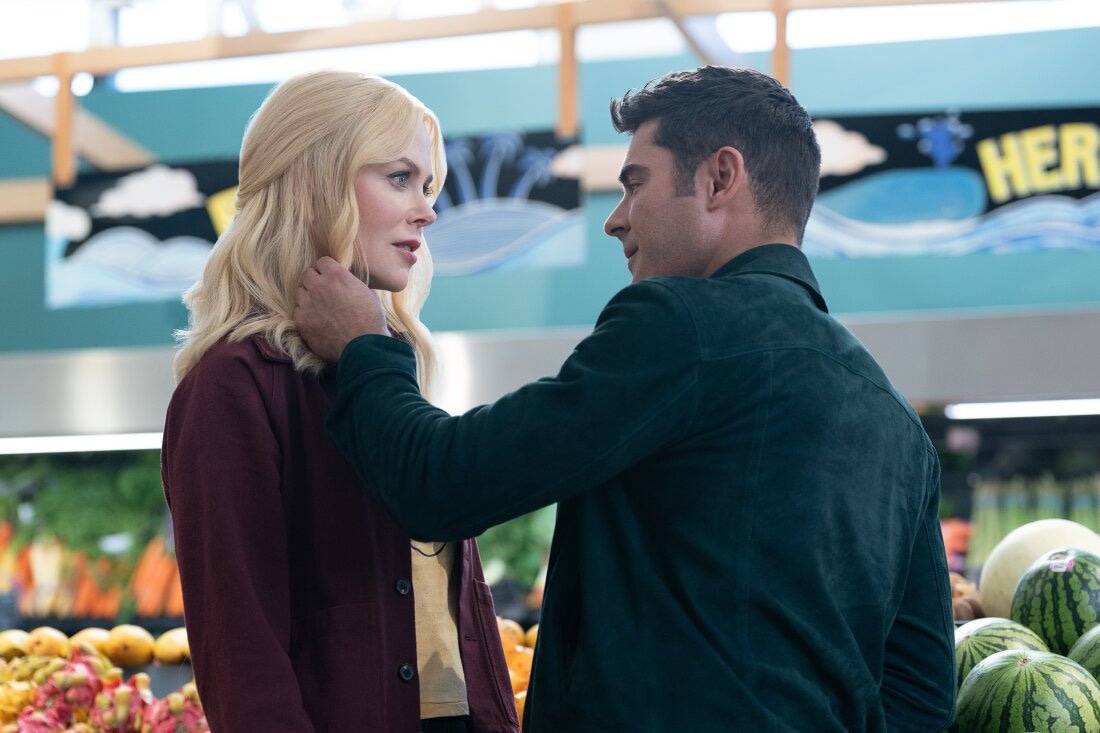Remember Roger Mitchell’s 1999 cult romantic comedy Notting Hill? Julia Roberts’ celebrated actor, Anna Scott, falls in love with Hugh Grant’s bookstore owner, William Thacker. She even shows up at his home, asks him if she can stay there, and also invites him to her hotel. Even at the end, when William confesses his love at a press conference with Anna on the stage, his declaration of love is met with “awwws” and congratulatory camera flashes. He’s shown as the lucky one who must fall in love with an actor only because she’s shown interest in him. Ever wondered if things would’ve been the same, especially today, if Hugh played the celebrity and Julia, a girl next door, a plain Jane?

(Also Read – The Idea of You movie review: Anne Hathaway, Nicholas Galitzine’s rom-com is more functional than frothy)
In all probability, if Julia would’ve reciprocated the advances in that case, she’d soon be labelled a ‘gold-digger.’ Or perhaps desperate for the limelight. You don’t have to go too far for another instance. In Sofia Coppola’s Priscilla last year, a 13-year-old girl marries a 24-year-old rock n’ roll sensation, Elvis Presley, simply because he shows interest in her. He brings her home after assuring her parents, never sleeps with her because he’s ‘not ready yet,’ and doesn’t let her venture out of their mansion. Even though we see the intense media glare only when Priscilla drives out of their home at the end, one can sense the extreme attacks she’d have encountered thanks to Elvis’ multiple rumoured affairs. Priscilla had to choose what was worse – the gaslighting and claustrophobia of his mansion or the media’s unforgiving scrutiny outside.
The Idea of a younger him
The dynamics become even more complex when it’s the woman who’s on the older side. For instance, in Michael Showalter’s recent rom-com The Idea of You (streaming on Prime Video), Anne Hathaway’s 40-year-old Solene is a single mother, separated from her husband, who’s now living with another, younger woman. She hasn’t really gained closure from that setback – in a moving scene, she confesses the guilt of how forgiving she was to her husband when she found out about the affair, only to see him walk away eventually. Solene becomes closed to the idea of love – till she comes across the idea of dating a 28-year-old popstar. The idea is fascinating and rewarding, yet the execution not so much.
Hayes Campbell (Nicholas Galitzine) is everything that she’s not: younger, famous, and a man. But like Anna in Notting Hill, Hayes is seeking normalcy: he’s attracted to a woman who’s not smitten by him, doesn’t give a hoot about his music, and belongs to the world of art galleries – that he’s far removed from, but inherently curious about. Dating becomes a challenge – since they can’t go out courtesy of his popularity, they have to suffice by making and eating sandwiches at her place. They don’t mind their dirty little secret till it spills out in the open. Right when Solene starts to overcome her personal fears – of abandonment, of culture shock, of repeating what she’s already a victim of – the rest of the world intervenes and passes judgement, further crystallising her receding fears.
Solene works on developing a thick skin, and so does her daughter from her first marriage. They shut out the noise by deactivating and staying off social media. But the surround sound makes its way into their bubble when her daughter reveals she’s going through a tough time at school because her batchmates bully her about her ‘cougar’ mother. Solene has no choice but to step back from love. After overcoming hurdles like fear of abandonment, ageism, and a drastic change in lifestyle – she gives in to what probably every single mom does at some point – mother’s guilt. In the end, we see Solene and Hayes reunite five years later when her daughter is off to college, but that invited criticism from Robinne Lee (author of the book the film is adapted from), who said, “I wanted to make a point about how, as women, we put others’ happiness before our own.”

Not just a family affair
That also happens in Richard LaGravenese’s more recent rom-com A Family Affair (streaming on Netflix), in which Nicole Kidman’s author Brooke Harwood falls for her daughter’s boss, Zac Efron’s actor Chris Cole. Yet again, Brooke isn’t a fan of Chris – or movies in general – as she’s consumed by her writing ambitions and sustaining her home as a single mother. Unlike The Idea of You, she’s not divorced but is a widow – which comes with challenges of a whole new degree. To make matters worse, Chris is famous. But as the title suggests, the news of the romance never leaks outside the family. Joey’s celebrity manager, Zara, is the representation of the big bad world outside – she’s judgemental, narrow-minded, and comes with the baggage of her own.
Joey, unlike the trolls, however, doesn’t judge her mother. She’s more scared for her because she knows Chris inside out – how dating and dumping women is part of his lifestyle. For actors, if there’s anything more transient than their fame, it’s their relationships. Zara keeps waving the red flag, but Brooke goes ahead with her romance anyway. When her daughter is able to finally put Chris on the spot, Brooke concedes defeat. She calls off the relationship because, yet again, her daughter doesn’t want them to get together. But she makes her disappointment heard. When Zara tells her, “You don’t know Chris,” Brooke responds, “Looks like I don’t know you either.”

It’s interesting that Brooke has her primary cheerleader in not her daughter or her boyfriend, but her mother-in-law (Kathy Bates). Although her husband is dead, she continues to have a healthy and intimate equation with her MIL, who was also her editor. Kathy’s character tells Brooke to get back to work, to give love another chance, and to not pay heed to her daughter’s disapproval – only because she sees Brooke not as a selfish mother, a cougar, a has-been writer, or a gold-digger (heck, she has a sea-side villa) – but as a middle-aged woman capable and deserving of much more. Only if the rest of the world could get past their biases and view such women with the same gaze.

